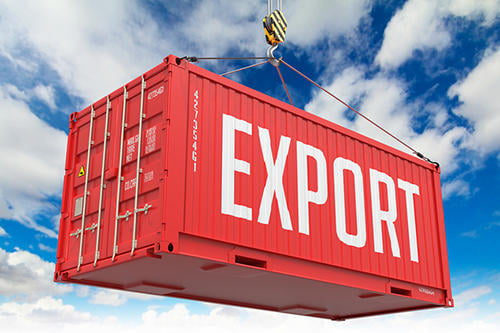Exporters and other stakeholders are closely monitoring developments related to a pending bill that seeks to clarify provisions in the Corporate Recovery and Tax Incentives for Enterprises (CREATE) Act, especially those on value added tax (VAT)-related transactions.
The pending bill called Corporate Recovery and Tax Incentives for Enterprises to Maximize Opportunities for Reinvigorating the Economy (CREATE MORE) was approved on third and final reading by the House of Representatives last March.
CREATE MORE, also known as House Bill (HB) 9794, is expected to clarify, reform, and further improve the tax incentive system in the Philippines. Among its objectives is to resolve issues stemming from the confusing and unclear provisions in the CREATE Act that have affected enterprises, particularly exporters.
After CREATE Act’s implementation, the private sector has raised several issues with the clarity and implementation in particular of its VAT zero-rating guidelines, warning that failure to resolve the VAT issue may cripple efforts of exporters to source materials locally and cause local suppliers to lose their market.
Earlier, House Ways and Means Committee chair Joey Salceda said the conflicting interpretations of the VAT regime under the implementing rules and regulations of the CREATE law must be resolved, especially given the loss of more than 125,000 manufacturing jobs.
The bill would make the VAT regime simpler, clearer, and transaction-based, while also improving its refund process, he said.
Essentially, CREATE MORE seeks to allow domestic market-focused companies and exporters, even those within the ecozones, to continue enjoying duty exemptions, VAT exemptions on imports, and VAT zero-rating on local purchases.
According to lawyer Fulvio Dawilan, a managing partner at Du-Baladad and Associates, it was necessary to draft the CREATE MORE bill precisely to address the confusions or misunderstandings generated by the CREATE Act.
In his opinion article in the Business Mirror, Dawilan explained that CREATE provided for VAT exemption on importation and VAT zero-rating on local purchases, but hinged on the condition that it shall only apply to goods and services directly and exclusively used by a registered business enterprise in the registered project or activity.
“However, some aspects of the implementation were not aligned with what the law intended to achieve and resulted in uncertainties,” he noted.
He added that to remedy this, CREATE MORE is proposing a few amendments. One of these relates to the use of the phrase “directly and exclusively used in the registered project or activity,” a requirement that limits the goods and services entitled to the VAT incentive to those purchases that are necessary to carry out the registered project or activity. “Thus, local purchases for administrative purposes, for example, are being excluded from the coverage of VAT zero-rated transactions,” he said.
Dawilan said the proposed legislation seeks to address this by replacing the phrase “directly and exclusively used in the registered project or activity” with the more flexible “directly attributable to the registered project or activity.”
More importantly, the proposed amendments enumerate some of the transactions that can avail themselves of the VAT zero-rating. These include janitorial services, security services, financial services, consultancy services, marketing and promotion, and services rendered for administrative operations such as human resources, legal and accounting.
“(If) this proposal becomes a law, it should put to rest any doubt as to what should be entitled to VAT zero-rating in so far as purchases of registered enterprises are concerned,” said Dawilan.
And to clarify further the VAT zero-rating incentive on local purchases, the proposed amendments specifically provide for the VAT treatment of the transactions of registered business enterprises as applied to a number of situations. For the sale of goods or services to an enterprise whose total sales are exported, these transactions shall be VAT-exempt. The sale of goods or services by a VAT-registered seller to registered export enterprises, regardless of location, shall be subject to 0% VAT. Meanwhile, the sale and delivery of goods to registered enterprises within a separate customs territory shall be subject to 0% VAT.
Dawilan said the enactment of HB 9794 will confirm the VAT zero-rating of local purchases of registered enterprises located in economic/freeport zones under the separate territory concept. This will also confirm the VAT zero-rating of local purchases of other registered export enterprises. Domestic market enterprises may also be entitled to the same incentive, subject to some conditions.
The CREATE MORE bill hurdled its third and final reading in the Lower House on March 18, 2024 and now awaits deliberation in the Senate.




